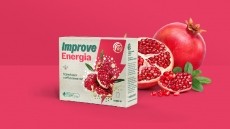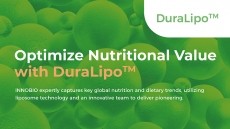Soy protein innovation may lead to functional food gel advances
The technology could be used to developgelled functional foods containing bioactive ingredients like a B vitamin, according to new research published in Food Hydrocolloids.
Hydrogels are liquid or semisolid materials composed of long-chain molecules cross-linked to one another to create many small empty spaces that can absorb water or other liquids like a sponge.
If the spaces are filled with a bioactive compound, for example, the hydrogel can release it gradually as the structure biodegrades.
Food scientists are exploring the potential of hydrogels for controlled release of ingredients. Earlier in 2009, for example, Nestlé scientists reported preliminary results with carrageenan-based gels for the delivery of flavour, texture and nutrient components.
The researchers also note that the hydrogels may be dried and tabletted, which could then be used as food supplements.
Lead researcher Muriel Subirade, PhD, holder of Canadian research chair in proteins, biosystems and functional foods at Laval University, told FoodNavigator that they are in discussions with industrial partners to develop soy protein hydrogels.
Study details
Soy protein isolate was used to prepare the hydrogel using a cold-gelation process to encapsulate a bioactive ingredient.
The B vitamin riboflavin was chosen as a model ingredient to test the release under simulated gastrointestinal conditions in the presence or absence of digestive enzymes called proteases.
Microscopic analysis of the hydrogel showed that riboflavin crystals were dispersed randomly. On passage through the simulated gastrointestinal system, a swelling of the hydrogel was observed at low pH 1.2 seen in the stomach.
On arriving in the intestine, which had a pH 7.5, the hydrogel began to shrink after one hour, said the researchers. This led a loss of structure and increased release of riboflavin. In the presence of pancreatin enzymes, the structure was totally digested leading to total release of the encapsulated B vitamin. Similar results were observed if the hydrogel or dried tabletted hydrogels were used, said the researchers.
“These results suggest that these tabletted hydrogels and the hydrogels themselves might both be useful for transporting bioactive molecules through the gastrointestinal tract and delivering them in the small intestine,” wrote the researchers.
“Considering their non-synthetic nature, they should be of great interest for the development of innovative functional foods,” they concluded.
Source: Food Hydrocolloids
Published online, doi: 10.1016/j.foodhyd.2009.11.016
“Tabletted soy protein cold-set hydrogels as carriers of nutraceutical substances”
Authors: A. Maltais, G.E. Remondetto, M. Subirade












